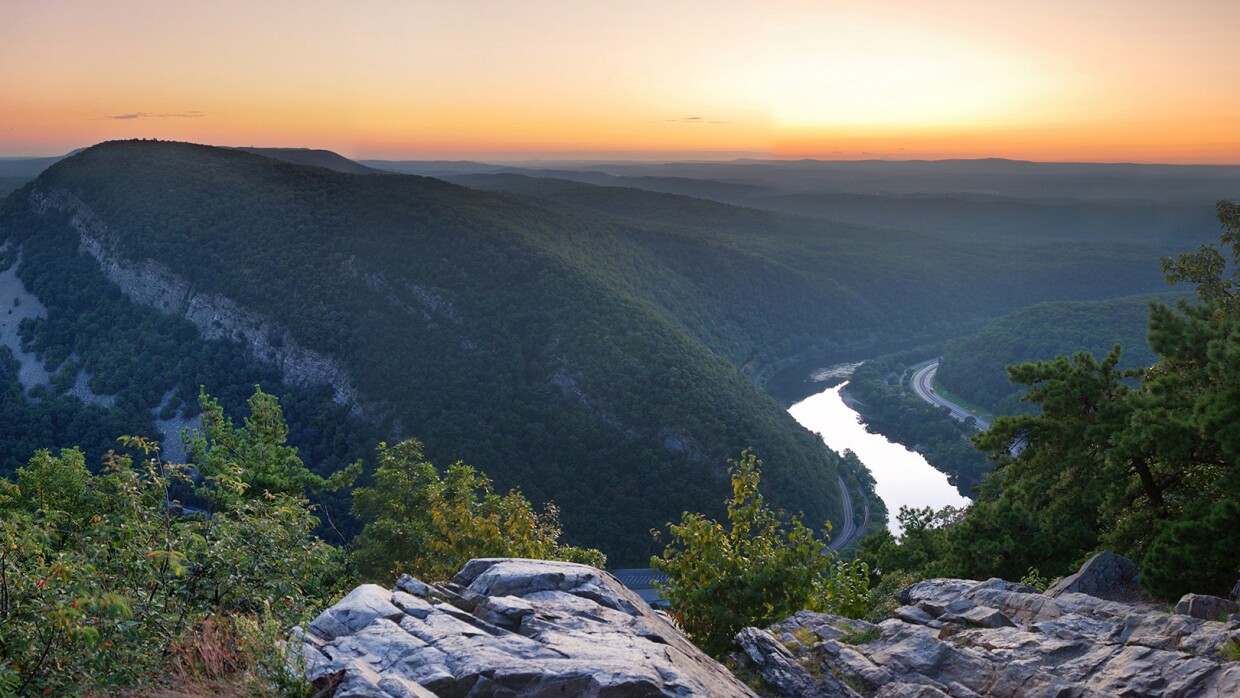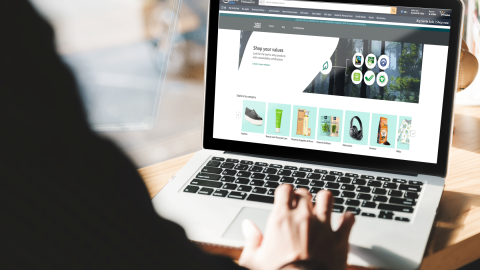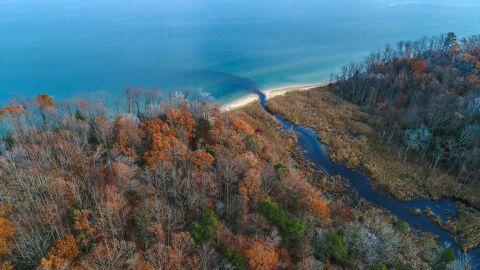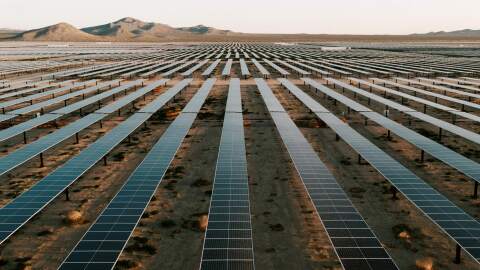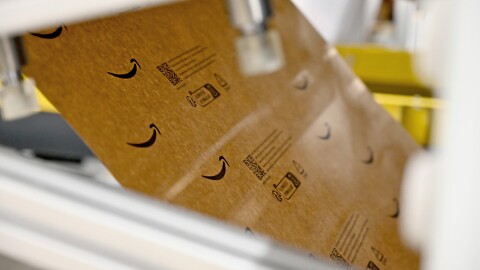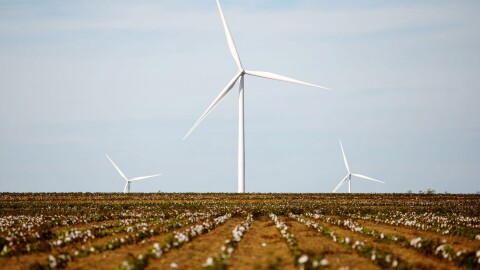While we are working hard to safely deliver essential products to customers during the COVID-19 outbreak, sustainability remains a top priority at Amazon. Since we co-founded The Climate Pledge in the fall of 2019 in partnership with former UN Climate Chief Christiana Figueres, we’ve made significant strides forward on many of our key initiatives thanks to the dedication of thousands of employees in various teams across Amazon—including more than 4,500 employees who have joined our Amazon Sustainability Ambassadors group.
Just this week, Amazon announced a US$10 million commitment—part of our US$100 million Right Now Climate Fund—to conserve, restore, and support sustainable forestry, wildlife, and nature-based solutions around the world. This first commitment, in collaboration with The Nature Conservancy, will support family forest owners in the Appalachian Mountains by creating a new income source to restore and conserve forest lands, protect wildlife, and help remove millions of metric tons of carbon from the atmosphere. This is the first of more projects to come in this area.
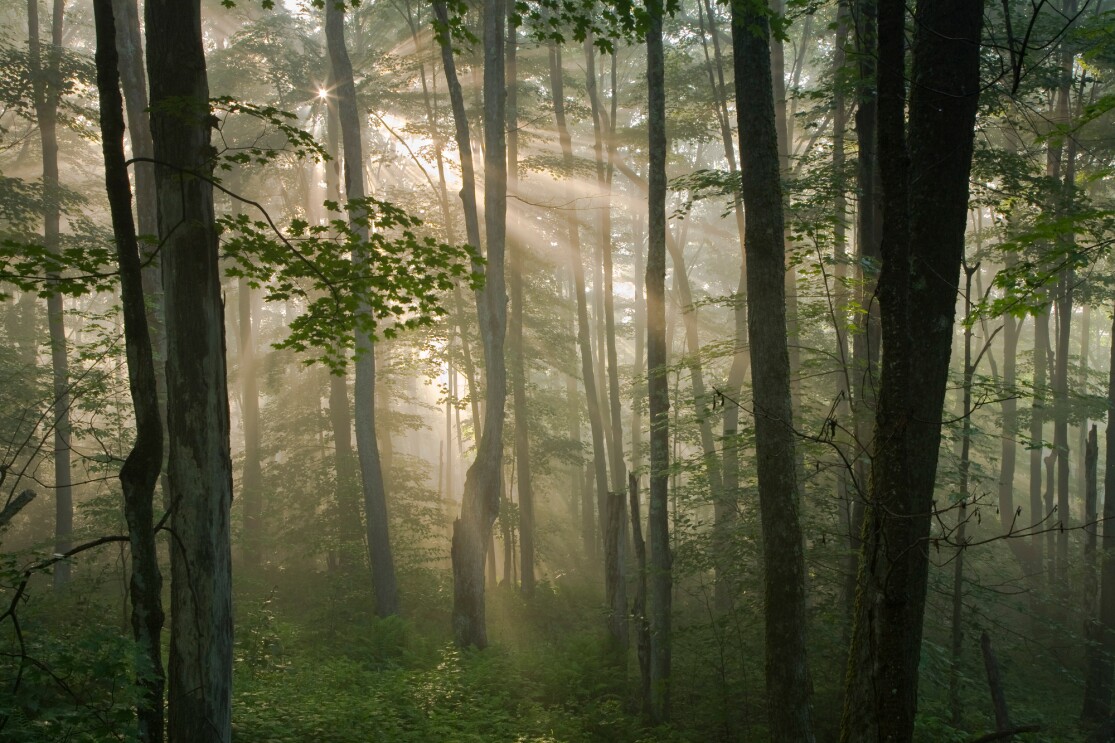
We recently provided a first look at the design and features of our brand-new electric delivery vehicles. As part of The Climate Pledge, Amazon announced an order of 100,000 electric delivery vehicles from Rivian, an electric vehicle maker and automotive technology company. Amazon plans to have 10,000 of the new electric vehicles on the road as early as 2022 and all 100,000 vehicles on the road by 2030—reducing millions of metric tons of carbon emissions per year by 2030.
Amazon is committed to running our operations on 80% renewable energy by 2024 and 100% by 2030 (and we’re working on a new plan to bring the 100% goal forward to 2025). We’re launching a range of new projects to make this a reality. Earlier this year, we announced a new solar farm in Virginia’s Pittsylvania County that will help power HQ2 and other Amazon-owned operations, including Whole Foods Markets and fulfillment centers. We also announced new renewable energy projects in Australia, Spain, Sweden, and another in the U.S., bringing the total to 86 renewable energy projects with the capacity to generate over 2,300 MW and deliver more than 6.4 million MWh of energy annually.
We’ve made continued progress on reducing our packaging waste. Our Frustration-Free Packaging program encourages manufacturers to package their products in easy-to-open packaging that is 100% recyclable and ready to ship to customers without additional Amazon boxes. Since 2015, we have reduced the weight of outbound packaging by 33% and eliminated over 880,000 tons of packaging material, the equivalent to about 1.5 billion shipping boxes.
We’ve also invented machine learning algorithms to help us make the smartest packaging choice for customer orders. Our Packaging Lab also developed a new, fully recyclable paper padded mailer for customer orders. Meanwhile, services like Amazon Second Chance, make it easier for customers to find out how and where to recycle various types of packaging and old electronic devices in their community.
We know there is more to be done, and the climate crisis is still upon us. With air pollution levels dropping significantly because of the global shifts in social and industrial behaviors during the COVID-19 pandemic, we’ve seen a glimpse into what a low-carbon future might look like. And we’re using this opportunity to learn from it and take action in the climate fight.
Over 4,500 Sustainability Ambassadors and growing
We couldn’t do this without the passionate support of Amazonians around the world. Our Sustainability Ambassadors group has over 4,500 Amazonians sharing ideas on how Amazon can help be a leader in protecting the planet and help expand efforts by our teams working directly on managing our environmental and social impacts. The Ambassadors program started in 2017 with chapters in corporate offices and fulfilment centres in the U.S. and Europe. Today, the program continues to expand with over 160 teams in the U.S., across Europe, Australia, Singapore, and India, among other locations.
Around the world, Sustainability Ambassadors are focused on driving processes, mechanisms and a broad cultural change in how we approach energy efficiency, waste reduction and recycling efforts at our corporate offices and operations sites. In the U.S., UK, Germany, Costa Rica, and Japan, teams are taking on a “zero cup” challenge to reduce the use of single-use cups. Amazonians in Luxembourg and the Czech Republic are exploring food sustainability workshops. All of these efforts can make a difference. As these Ambassadors develop their projects, we measure the impact of these efforts and capture all of the best practices to continue to build and rapidly replicate this great work.
I want to say thanks for the ideas, insights, and energy we get from teams across Amazon and give a shout out to our Sustainability Ambassadors—some of whom told the story of their work by filming themselves for the above video while working from home in recent weeks.



